William Marshal Earl Of Pembroke: Master Of Tournaments And Best Example Of Medieval Chivalry And Knighthood
A.Sutherland - AncientPages.com - William Marshal is considered one of the greatest English knights and magnates of the Middle Ages.
 William Marshal by John Evan Thomas © Palace of Westminster Collection WOA S67 www.parliament.uk/art. Image via cadw
William Marshal by John Evan Thomas © Palace of Westminster Collection WOA S67 www.parliament.uk/art. Image via cadw
He owes fame to his incredible career and biography that mentions his courage, loyalty, modesty, honor, and successful tournaments.
William Marshal's life is well documented because less than a year after his death in 1219, his eldest son and heir, William Marshal II, commissioned a record of his father's life in the form of the rhymed work "The History of William Marshal." The manuscript was discovered at an auction in 1861.
At first, William Marshal was an unknown, poor noble English warrior who did not possess more than his horse and some essential equipment. As a young boy, he was sent by his father to Normandy to be trained as a knight in the household of William de Tancarville, his mother's brother, Patrick, Earl of Salisbury.
It was an unquestionable and natural choice of a path to William's future success. He trained hard for seven years to perfect both knightly skills and refine his skills with the mace and sword.
 Pembroke Castle is perhaps the most complete medieval castle in west Wales. Image credit: Britain Express
Pembroke Castle is perhaps the most complete medieval castle in west Wales. Image credit: Britain Express
Marshal was knighted, probably by his uncle, in 1167 (1166) on a campaign in Upper Normandy at the time of the conflict between Henry II of England and Louis VII of France. He was offered many opportunities as a warrior and a brave and successful tournament participant.
William Marshal never broke his word and his oath of loyalty.
Making an oath of loyalty, William Marshal made one similar to this one: "Nor will I ever with will or action, through word or deed, do anything which is unpleasing to him, on condition that he will hold to me as I shall deserve it, and that he will perform everything as it was in our agreement when I submitted myself to him and chose his will."
An important turning point in his career occurred during an ambush in 1168, when Patrick, Earl of Salisbury, and Eleanor of Aquitaine (1122-1204), a Queen consort of France and England and mother of Richard I (the Lion-Heart) were returning from a pilgrimage.
The earl was killed, and William was injured but helped Eleanor to escape. He was later ransomed by Eleanor, who had heard of his bravery.
 William Marshal, First Earl of Pembroke, died in 1219. The Temple Church, London
William Marshal, First Earl of Pembroke, died in 1219. The Temple Church, London
By the 1170s, William had become a popular but professional participant in tournaments, giving him almost legendary wealth. He was a strong, brave man, and his skills with a lance, mace, and sword, along with horsemanship, largely contributed to his successes.
He made a living from winning tournaments, which were at that time rather dangerous and often deadly. Matches were at that time challenging – often fatal battles. Money, armor, horses, and valuable prizes could be won by capturing and ransoming opponents.
Crossing Europe for twenty years, William Marshal allegedly defeated more than 500 knights, winning one tourney after another. He spent two years in the Holy Land fighting for King Guy of Jerusalem and the Knights Templar. Finally, he reached the royal court, where he stayed as a mentor of Henry the Young King, son of Henry II. On the death of the young Henry, Marshal was authorized by Henry II to take the young Henry's cross to Jerusalem.
On his return to England in 1185, William swore allegiance to King Henry II and served as his loyal captain against his rebellious son and heir, Richard. They soon became Richard I, The Lionheart.
In return, Henry II granted Marshal his first royal estate of Cartmel Lancashire, Cumbria. William became a vassal of King Henry II; he swore allegiance to him as his lord and king. Until Henry II's death in 1188, William Marshal served as his knight, ambassador, and counselor.
Château de Tancarville in Normandy, where William Marshal began his training as a knight. Image credit: John Sell Cotman - This file comes from Gallica Digital Library and is available under the digital ID btv1b20000671 - Public Domain
When Richard I came to the throne, he recognized Marshal as a brother and equal in chivalry. He fulfilled the promise his father made, and Richard gave Marshal the hand of Isabel de Clare, who possessed vast lands in Wales and Ireland.
As the owner of the lands, William Marshal became one of the greatest lords and magnates in the Plantagenet Kingdom and received the title Earl of Pembroke.
He left an enormous legacy in the form of the fortifications and development of castles and towns.
William Marshal died May 14, 1219, at Caversham and was buried as a Knight Templar. His grave can still be seen in the Temple Church in London.
The news of his death traveled across the Channel. He was mourned by the King of France and his court as the most trustworthy, clever, and best knight of his age.
Written by – A. Sutherland AncientPages.com Staff Writer
Updated on October 5, 2022
Copyright © AncientPages.com All rights reserved. This material may not be published, broadcast, rewritten or redistributed in whole or part without the express written permission of AncientPages.com
Expand for referencesMore From Ancient Pages
-
 World’s Oldest And Largest Maya Structure Revealed By LIDAR
Archaeology | Jun 9, 2020
World’s Oldest And Largest Maya Structure Revealed By LIDAR
Archaeology | Jun 9, 2020 -
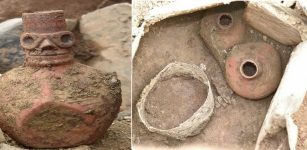 Wari Culture: Ancient Astronomical Observatory Excavated In Cusco, Peru
Archaeology | Dec 20, 2017
Wari Culture: Ancient Astronomical Observatory Excavated In Cusco, Peru
Archaeology | Dec 20, 2017 -
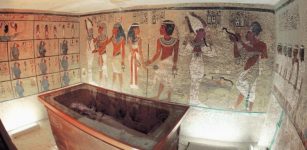 Non-Invasive Radar Will Search King Tutankhamun’s Tomb For Nefertiti’s Hidden Crypt
Civilizations | Sep 24, 2015
Non-Invasive Radar Will Search King Tutankhamun’s Tomb For Nefertiti’s Hidden Crypt
Civilizations | Sep 24, 2015 -
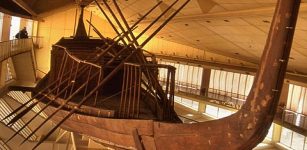 Khufu Boat And Unique Boat-Building Technique Of Ancient Egyptians
Artifacts | Jun 20, 2017
Khufu Boat And Unique Boat-Building Technique Of Ancient Egyptians
Artifacts | Jun 20, 2017 -
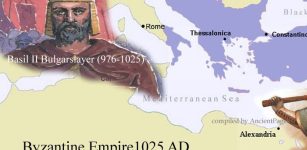 Varangian Guard: Professional Viking Warriors Highly Valued For Courage, Loyalty, Discipline And Fighting Skills
Featured Stories | Jun 4, 2017
Varangian Guard: Professional Viking Warriors Highly Valued For Courage, Loyalty, Discipline And Fighting Skills
Featured Stories | Jun 4, 2017 -
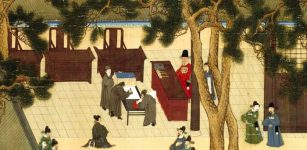 History Shows: Taxes And Bureaucracy Are Cornerstones Of Democracy
Archaeology | Feb 18, 2021
History Shows: Taxes And Bureaucracy Are Cornerstones Of Democracy
Archaeology | Feb 18, 2021 -
 Ancient Chinese Ball Game Cuju Is Earliest Form Of Football
Ancient History Facts | Jan 22, 2016
Ancient Chinese Ball Game Cuju Is Earliest Form Of Football
Ancient History Facts | Jan 22, 2016 -
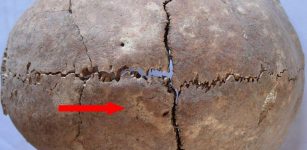 Physical Violence In Ancient Mesopotamia Much Less Common Than Ancient Texts Suggest – New Study
Archaeology | Mar 29, 2017
Physical Violence In Ancient Mesopotamia Much Less Common Than Ancient Texts Suggest – New Study
Archaeology | Mar 29, 2017 -
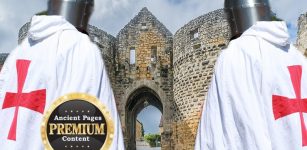 Strange Engraving Made By Knights Templar In French Village – Riddle Of The Rod – Part 1
Featured Stories | Oct 7, 2019
Strange Engraving Made By Knights Templar In French Village – Riddle Of The Rod – Part 1
Featured Stories | Oct 7, 2019 -
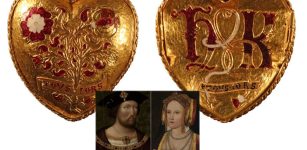 Beautiful Tudor Gold Pendant Linked To Henry VIII And Katherine Of Aragon Discovered By A Metal-Detectorist
Archaeology | Feb 1, 2023
Beautiful Tudor Gold Pendant Linked To Henry VIII And Katherine Of Aragon Discovered By A Metal-Detectorist
Archaeology | Feb 1, 2023 -
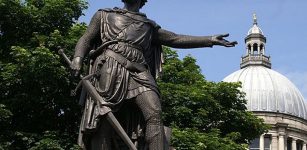 On This Day In History: Scottish Hero William Wallace Who Met Horrible Death – Is Still Remembered – August 23, 1305
News | Aug 23, 2016
On This Day In History: Scottish Hero William Wallace Who Met Horrible Death – Is Still Remembered – August 23, 1305
News | Aug 23, 2016 -
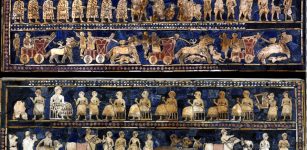 Image Of The Day: ‘The Standard of Ur – War And Peace’
Civilizations | Sep 7, 2015
Image Of The Day: ‘The Standard of Ur – War And Peace’
Civilizations | Sep 7, 2015 -
 Neglected Ancient Artifacts That Could Re-Write History – Evidence Of Surprising Advanced Ancient Technology That Shouldn’t Exist
Artifacts | Feb 19, 2019
Neglected Ancient Artifacts That Could Re-Write History – Evidence Of Surprising Advanced Ancient Technology That Shouldn’t Exist
Artifacts | Feb 19, 2019 -
 Powerful Thunderbird Sent By The Gods To Protect Humans From Evil In Native American Legends
Featured Stories | Mar 26, 2017
Powerful Thunderbird Sent By The Gods To Protect Humans From Evil In Native American Legends
Featured Stories | Mar 26, 2017 -
 Mjölnir: Thor’s Terrible Axe-Hammer And Its Magical Powers In Norse Mythology
Featured Stories | Apr 20, 2017
Mjölnir: Thor’s Terrible Axe-Hammer And Its Magical Powers In Norse Mythology
Featured Stories | Apr 20, 2017 -
 Roman Empire’s Emerald Mines In The Egyptian Eastern Desert – New Evidence
Archaeology | Mar 2, 2022
Roman Empire’s Emerald Mines In The Egyptian Eastern Desert – New Evidence
Archaeology | Mar 2, 2022 -
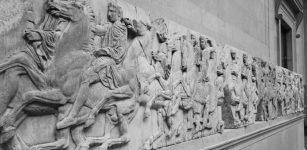 British Museum Is World’s Largest Receiver Of Stolen Goods – Says QC
Archaeology | Nov 12, 2019
British Museum Is World’s Largest Receiver Of Stolen Goods – Says QC
Archaeology | Nov 12, 2019 -
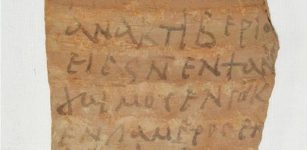 Rare Discovery Of More Than 18,000 Inscribed Pot Sherds Document Life In Ancient Egypt
Archaeology | Jan 31, 2022
Rare Discovery Of More Than 18,000 Inscribed Pot Sherds Document Life In Ancient Egypt
Archaeology | Jan 31, 2022 -
 3,000-Year-Old African Musical Instrument Can Help Modern Medicine
Archaeology | Sep 19, 2018
3,000-Year-Old African Musical Instrument Can Help Modern Medicine
Archaeology | Sep 19, 2018 -
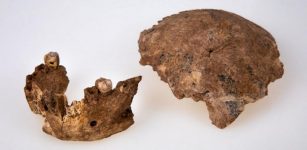 New Type Of Early Previously Unknown Human Discovered In Israel
Archaeology | Jun 29, 2021
New Type Of Early Previously Unknown Human Discovered In Israel
Archaeology | Jun 29, 2021

